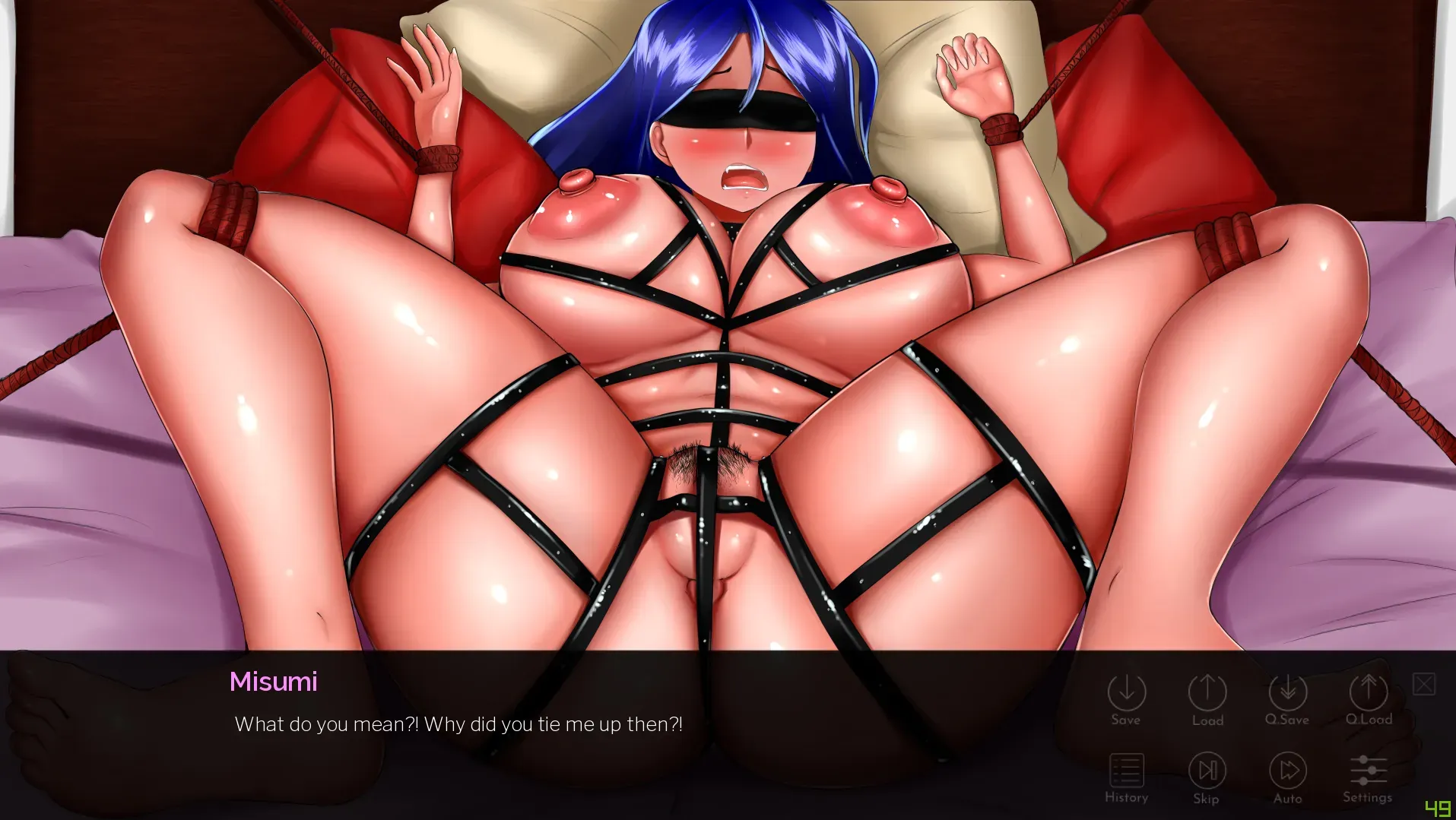
A Summer’s End – Hong Kong, 1986
Play A Summer’s End – Hong Kong, 1986
A Summer’s End – Hong Kong, 1986 review
Exploring the Story, Characters, and Cultural Setting of A Summer’s End – Hong Kong, 1986
A Summer’s End – Hong Kong, 1986 is a captivating visual novel that immerses players in a heartfelt romance set against the vibrant backdrop of 1980s Hong Kong. Centered on the lives of Michelle, a young office worker, and Sam, a home video store owner, the game explores themes of love, identity, and cultural tension. This article dives into the narrative depth, character development, and unique setting that make this game a standout experience for fans of story-rich interactive fiction.
Unpacking the Narrative and Characters of A Summer’s End – Hong Kong, 1986
Let’s be honest—we’ve all played games where the characters feel about as deep as a puddle. 😅 You know the ones: the cardboard-cutout hero, the damsel in distress, the villain who’s evil just because. It’s totally rubbish, and it leaves you feeling empty, like you just wasted hours of your life. But then, every once in a while, a game comes along that does the exact opposite. It pulls you into its world so completely that you forget you’re holding a controller. You laugh with the characters, you cry with them, and their struggles start to feel like your own. For me, that game was A Summer’s End – Hong Kong, 1986.
This isn’t just another visual novel romance story; it’s a heartfelt, beautifully crafted journey into the lives of two incredibly real women. If you’re fed up with shallow plots and are craving a story with genuine emotional weight, you’re in the right place. I’m going to walk you through the rich narrative and the unforgettable A Summer’s End Hong Kong 1986 characters that make this experience so special. Let’s dive in. ✨
Who Are Michelle and Sam? Exploring the Protagonists
At the heart of this experience are Michelle and Sam, two women whose lives couldn’t be more different on the surface. Understanding them is key to understanding the entire game.
Michelle is a young office worker, the “good daughter” striving to meet the traditional expectations of her family. She’s pragmatic, a little reserved, and carries the weight of her family’s hopes on her shoulders. Her world is one of order, responsibility, and filial duty. Sam, on the other hand, is a free spirit. 👩🎨 She’s an artist who lives life on her own terms, running a video rental store—a quintessential hub of 1980s Hong Kong culture. She’s bold, expressive, and unapologetically herself. They are opposites, and that’s precisely what makes their connection so electric.
Their relationship doesn’t start with grand declarations. It begins with a simple, almost awkward meeting. I remember the scene vividly: Michelle, looking slightly out of place, walks into Sam’s store. The conversation is hesitant, filled with the kind of small talk you make when you’re intensely aware of someone new. But beneath the surface, there’s an undeniable pull. You can feel the curiosity, the tentative interest that slowly chips away at their defenses. This careful, authentic build-up is what makes the Michelle and Sam relationship feel so earned and real. It’s a slow burn that pays off in spades. ❤️🔥
Their personalities are masterfully revealed through their interactions. Michelle’s cautious nature is constantly challenged by Sam’s spontaneity. A key moment that stuck with me was when Sam convinces a reluctant Michelle to skip her rigid schedule and just go for a drive. In that moment, you see Michelle’s internal conflict—the desire for freedom clashing with her ingrained sense of duty. It’s a small scene, but it speaks volumes about both of their characters and sets the stage for their growth.
Themes of Love, Identity, and Family in 1980s Hong Kong
This game is so much more than a love story; it’s a deep exploration of self-discovery set against a very specific time and place. The 1980s Hong Kong culture isn’t just a backdrop—it’s a active character in the narrative. Hong Kong in the 80s was a buzzing, vibrant city caught between its colonial past and an uncertain future, a place where modern ideas were beginning to brush up against deep-seated tradition.
This tension is the perfect crucible for exploring identity themes in visual novels. Michelle’s journey is, at its core, about figuring out who she is outside of what her family and society expect her to be. Her struggle is incredibly relatable. How many of us have felt the pressure to conform to a role that didn’t quite fit? The game handles this with a delicate touch, showing her anxiety and confusion without ever making her seem weak. Her evolution is a powerful testament to the courage it takes to choose your own path.
“I didn’t expect a game to make me reflect on my own family and choices. Seeing Michelle navigate her duty and her heart felt like looking in a mirror. It’s a story that stays with you long after the credits roll.” — A player’s testimonial
Of course, you can’t talk about identity without talking about the family dynamics in A Summer’s End. Michelle’s relationship with her mother is particularly poignant. It’s not portrayed as outright hostile, but rather layered with a complex mix of love, expectation, and quiet disappointment. These interactions are some of the most emotionally charged in the game, because they feel so true to life. The desire for parental approval, even when chasing your own happiness, is a universal ache. 👨👩👧
And then there’s the love story. Calling A Summer’s End – Hong Kong, 1986 a queer love story in games is accurate, but what makes it exceptional is its normalcy. Their relationship isn’t framed as a “issue” to be solved. The conflict arises from personal and familial expectations, not from societal hatred. It’s a story about two people falling in love, who just happen to be two women. This nuanced approach makes their joy, their fear, and their affection feel profoundly human and accessible to everyone. 🌈
How the Story Reflects Cultural and Social Dynamics
The genius of this narrative is how it weaves these personal struggles into the larger fabric of its setting. The game doesn’t tell you about 1980s Hong Kong; it shows you. From the neon-drenched streets and the synth-pop soundtrack to the casual conversations about the future, the atmosphere is palpable. You feel the energy of a city on the brink of massive change.
This context is vital for understanding the characters’ constraints. The conservative social fabric of the time acts as an invisible barrier. Michelle and Sam’s relationship unfolds in private moments—hidden glances, secret meetings, conversations in the safe haven of Sam’s apartment. The game brilliantly uses this to create intimacy and tension. The world outside isn’t screaming in protest; it’s simply oblivious, which in its own way, can feel just as isolating.
The Michelle and Sam relationship is a quiet rebellion against these unspoken rules. Their love story is a personal victory set against a backdrop of social conformity. It’s a powerful reminder that change often starts in the smallest, most personal of moments.
To really see how the game layers these elements, let’s look at some specific cultural touchstones it brings to life:
| Cultural Element | How It’s Used in the Story | Impact on Characters |
|---|---|---|
| Family Expectations (面子 “Face”) | Michelle’s mother emphasizes reputation and duty. | Creates the central internal conflict for Michelle, forcing her to choose between family and self. |
| 1980s Pop Culture | Sam’s video store, music, and fashion. | Establishes the era and Sam’s character as modern and independent contrasted with Michelle’s traditional world. |
| Urban Hong Kong Landscape | Scenes in crowded streets, neon signs, and apartments. | Provides a vibrant, authentic setting and symbolizes the clash between crowded public life and desired private freedom. |
The narrative doesn’t need to be overtly political because the politics are inherent in the setting and the personal is political. By focusing on the authentic experiences of its A Summer’s End Hong Kong 1986 characters, the game delivers a far more impactful commentary on love and identity than any grand speech could.
Ultimately, A Summer’s End – Hong Kong, 1986 succeeds because it trusts its characters and its audience. It presents a visual novel romance story that is tender, honest, and deeply moving. It proves that the most powerful stories are often the quietest ones, the ones that hold a mirror to our own lives and remind us of the universal struggle to love and be loved for who we truly are. If you’re looking for a game that offers not just an escape, but a reflection, this is it. 🎮💖
A Summer’s End – Hong Kong, 1986 offers a beautifully crafted narrative experience that combines rich character development with a vivid cultural setting. Its exploration of love and identity through the lens of 1980s Hong Kong provides players with a meaningful and memorable journey. Whether you are a fan of visual novels or interested in stories that delve into personal and cultural complexities, this game is a compelling choice. Dive into Michelle and Sam’s world and discover a romance that resonates beyond the screen.












